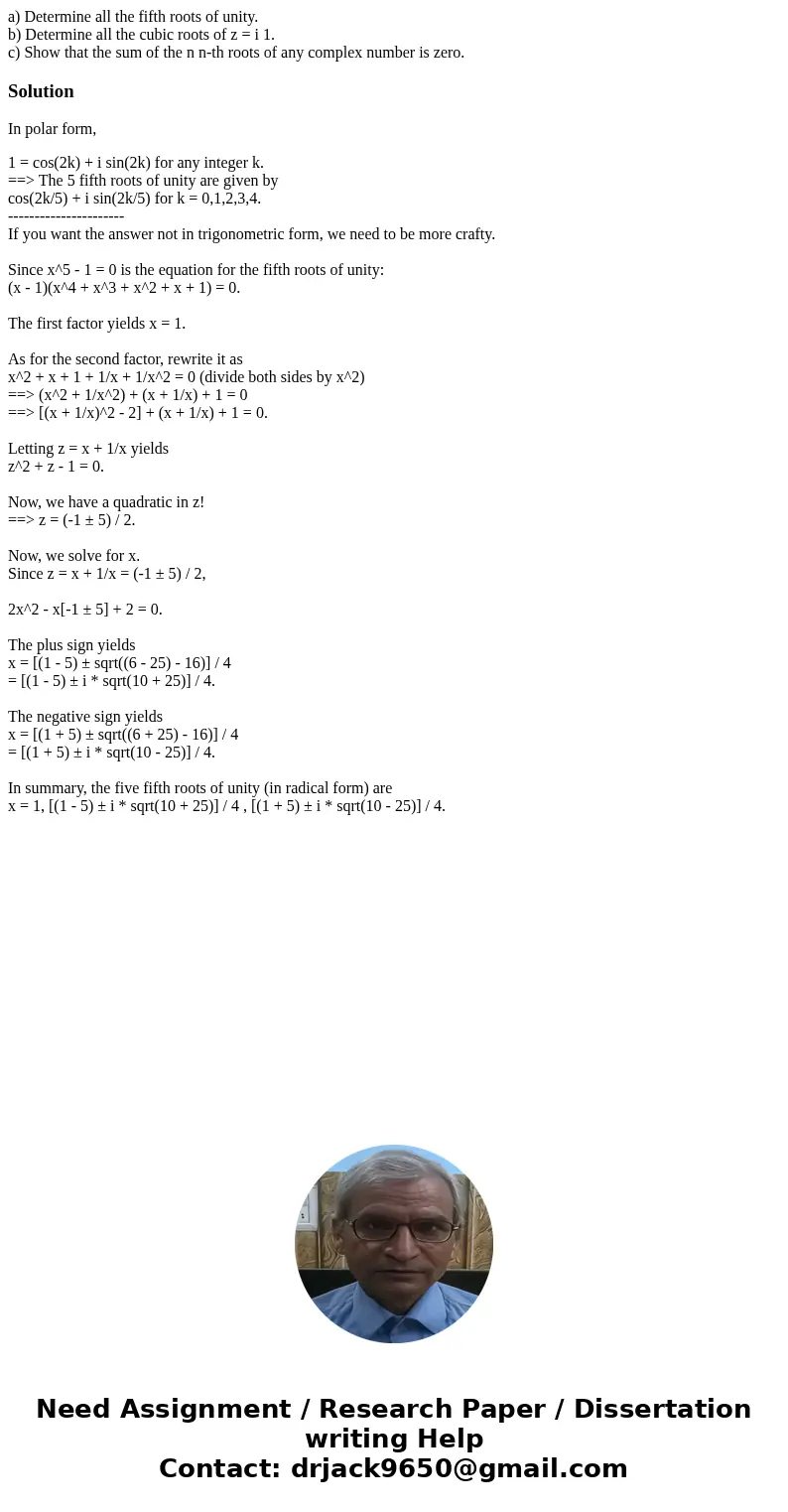a Determine all the fifth roots of unity b Determine all the
a) Determine all the fifth roots of unity.
b) Determine all the cubic roots of z = i 1.
c) Show that the sum of the n n-th roots of any complex number is zero.
Solution
In polar form,
1 = cos(2k) + i sin(2k) for any integer k.
==> The 5 fifth roots of unity are given by
cos(2k/5) + i sin(2k/5) for k = 0,1,2,3,4.
----------------------
If you want the answer not in trigonometric form, we need to be more crafty.
Since x^5 - 1 = 0 is the equation for the fifth roots of unity:
(x - 1)(x^4 + x^3 + x^2 + x + 1) = 0.
The first factor yields x = 1.
As for the second factor, rewrite it as
x^2 + x + 1 + 1/x + 1/x^2 = 0 (divide both sides by x^2)
==> (x^2 + 1/x^2) + (x + 1/x) + 1 = 0
==> [(x + 1/x)^2 - 2] + (x + 1/x) + 1 = 0.
Letting z = x + 1/x yields
z^2 + z - 1 = 0.
Now, we have a quadratic in z!
==> z = (-1 ± 5) / 2.
Now, we solve for x.
Since z = x + 1/x = (-1 ± 5) / 2,
2x^2 - x[-1 ± 5] + 2 = 0.
The plus sign yields
x = [(1 - 5) ± sqrt((6 - 25) - 16)] / 4
= [(1 - 5) ± i * sqrt(10 + 25)] / 4.
The negative sign yields
x = [(1 + 5) ± sqrt((6 + 25) - 16)] / 4
= [(1 + 5) ± i * sqrt(10 - 25)] / 4.
In summary, the five fifth roots of unity (in radical form) are
x = 1, [(1 - 5) ± i * sqrt(10 + 25)] / 4 , [(1 + 5) ± i * sqrt(10 - 25)] / 4.

 Homework Sourse
Homework Sourse